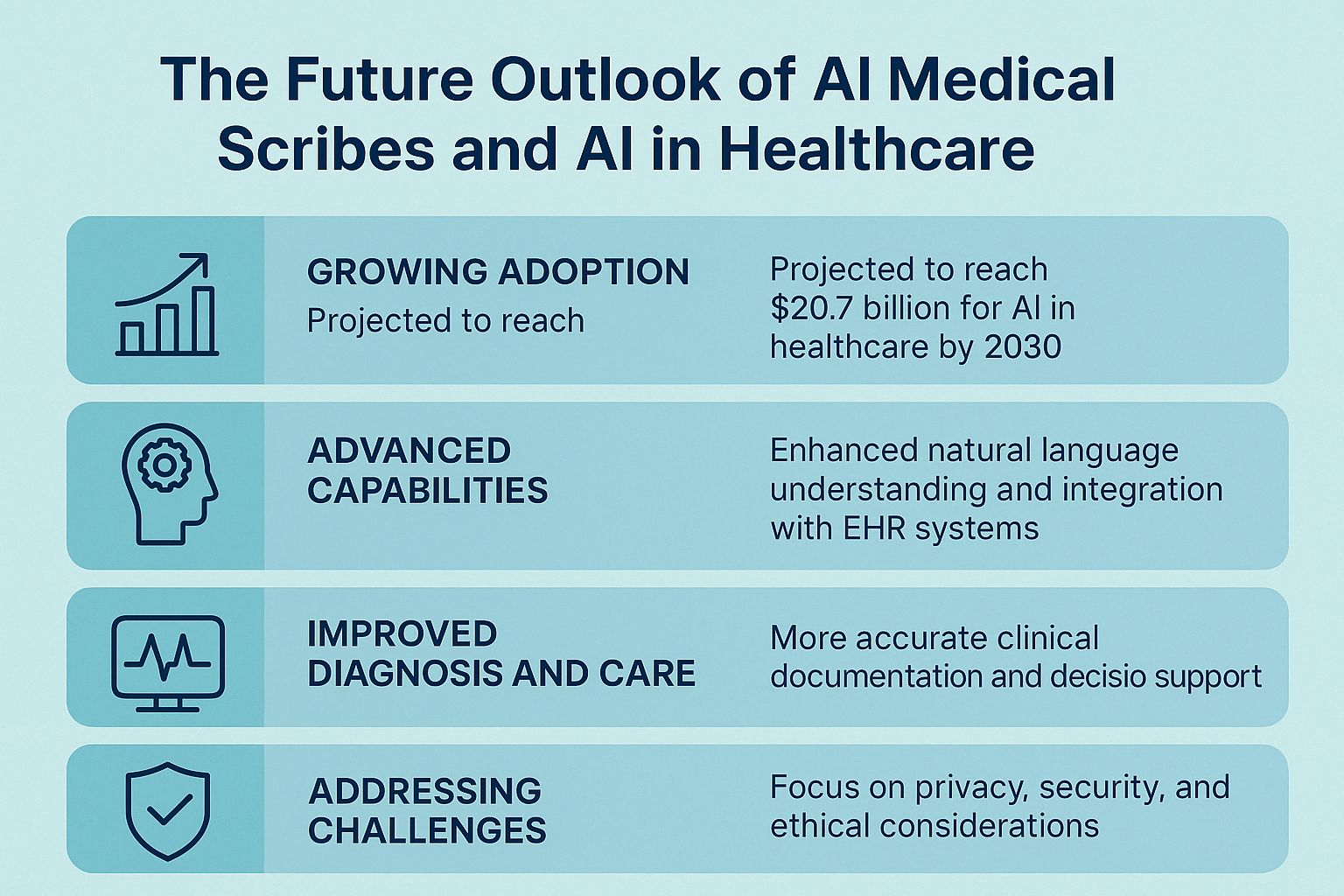AI Clinical Decision Support: What It Is, How It Works, and Why It Matters in 2025

All across the world, healthcare is experiencing a massive transformation. There is a surge in the volumes of recorded patient data, technological advancements in the medical field, and a continuous drive to improve patient care.
Global healthcare is growing steadily and is estimated to create almost 40 million new jobs by 2030. However, there is still a considerable shortage of 9.9 million healthcare professionals, as per the WHO. It is essential to meet this demand through attraction, training, and retention, and ensure their time is used most for patient care. Ongoing technological advancements have contributed to the emergence of artificial intelligence, which is now making its way through the healthcare sector and redefining its operations. AI in healthcare is no longer an imagination but a stark reality, leveling up the overall healthcare game.
With this rapid evolution from a promising to a transformative technology, AI has now reached unprecedented levels of rapid adoption and is driving innovations by assisting medical professionals with various clinical tools. AI clinical decision support is a transformative technology that is improving diagnostic accuracy and providing real-time recommendations for patient treatment. For the Chief Medical Information Officers, practice owners, and clinicians, gaining in-depth awareness of the importance and functionality of AI-powered CDS can help stay ahead in the medical innovation process.
What is AI Clinical Decision Support?
Clinical decision support, or CDS powered by artificial intelligence, is a tool that helps clinicians make evidence-based and data-driven medical decisions for patients. This application analyzes the data gathered from the patients and delivers contextual information in real time, aiding better clinical decision-making. While traditional CDS systems relied on predefined logic and followed a specific structure, the AI-driven modern CDS uses machine learning that identifies the complicated data patterns and then analyzes them, sharing the associated risks and offering personalized recommendations.
AI CDS systems are transformative AI clinical tools that adopt the latest technologies like ML, NLP, and deep learning for constant learning and adapting, drawing from the updated data. Hence, it is able to generate refined and relevant guidance that aligns with the ongoing developments in healthcare and patient care. AI-powered CDS can easily analyze large volumes of data accurately and fast while driving essential insights from the EHR (electronic health records) and monitoring real-time patients. These analyses are then used for diagnostic recommendations, risk stratifications, and providing treatment plans. The CDS powered by AI is designed in a way that it easily integrates with the existing systems and clinical workflows, thereby offering relevant and real-time recommendations.
AI CDS in healthcare: How it works?
AI CDS is an innovative tool that uses various data science techniques as well as ML models. The tool has turned out to be highly valuable, bringing major improvements in patient care. Acting as a highly competent tool to handle large clinical datasets of patients, it is undoubtedly quick, efficient, and reliable. However, to gain insights into the transformative impact of the tool on the modern healthcare landscape, it is essential to understand how it works.
The tool basically involves the following stages and processes:
Data Aggregation
The first step in applying AI-driven clinical decision support (CDS) is aggregating data from a wide range of sources. This includes unstructured data such as clinical notes and patient narratives, as well as structured inputs like labs, imaging, genomics, device data, and EHR entries. Real-time feeds from monitors and wearables can also be integrated to provide a more dynamic picture of the patient’s condition. The goal is to assemble a complete, longitudinal view of the patient that can serve as input for downstream analysis.
Data Processing and Analysis
Once aggregated, the data is passed through preprocessing pipelines that clean, normalize, and structure it into formats compatible with AI models. This includes tasks like extracting clinical entities, mapping to standardized terminologies, and aligning time-stamped events. As new information becomes available, the system reprocesses and reevaluates context to maintain relevance. This ensures that outputs remain accurate and clinically appropriate in real time.
Generating Insights
In this phase, the AI CDS synthesizes data to surface meaningful, context-aware recommendations. These might include diagnostic suggestions, flags for potential complications (like drug-drug interactions), or risk stratification for specific conditions. Insights are typically surfaced within the clinical workflow—via EHR-integrated dashboards or messaging tools—so they’re actionable without adding friction. While automation helps with speed and consistency, clinicians remain in control, reviewing and validating outputs before acting. The result is not just efficiency, but improved decision support with less cognitive overhead.
What are the Benefits of Integrating AI CDS in Healthcare?
The AI-powered CDS has been redefining multiple aspects in the healthcare sector. From diagnostics and treatment recommendations to chronic disease management, medication, and operational workflow efficiency, it is leaving a massive impact. Here are the essential benefits and how the incorporation of AI CDS in healthcare can transform medical facilities in the present era.
Improves Accuracy in Diagnosis

Identifying patterns across high volumes of clinical data is time-consuming and error-prone, especially when the signals are subtle or buried in noise. One of the most valuable applications of AI-driven CDS is its ability to not only flag diagnostic patterns early, but also surface treatment recommendations that are specific to the individual patient. That combination- early detection plus personalized guidance- can reduce diagnostic errors and support faster, more precise care. This is especially important in areas like oncology or rare disease, where timing and specificity matter most. With the right tools in place, clinicians don’t just get more data- they get a clearer path forward.
Increases Workflow Efficiency
Another significant benefit of leveraging AI CDS is experiencing improved operational efficiency through the help of automated routine activities and various administrative tasks. This not only helps the physicians to save time but also prioritizes and focuses on what matters the most - patient care. They can take more time for consultations and planning effective patient treatment options. They streamline the clinical documentation process and care coordination. With the help of this AI tool, healthcare organizations can predict the workload and patient volumes effectively, thereby optimizing resource allocations accordingly. This is chiefly significant for the emergency departments and organizations catering to healthcare facilities for large numbers of patients. Additionally, by lowering the unnecessary workload, the tool promotes rapid decision-making and boosts the overall productivity of the institution.
Optimizes Decision-Making
One of the key benefits of AI-driven CDS is that it helps clinicians make faster decisions. AI clinical decision support boosts efficiency by incorporating details based on evidence and real-time data with clinical workflows. With access to advanced diagnostic tools and patient-oriented diagnostic recommendations, the tool can deliver insights into the various associated risks and safer treatment plans tailored to the patient’s condition. Additionally, this clinical tool instills confidence in the medical practitioner by offering alternative treatment approaches. It provides continuous learning assistance in the professional development domain, thereby helping professionals with efficient decision-making skills.
The Importance Of Choosing The Right AI Clinical Decision Support
As the healthcare domain increasingly depends on digital innovations and technological advancements offering real-time data, the need for AI-powered CDS has become crucial. Investing in the right clinical decision support is essential not only because of its cost but also its value, as it is clinically vital. A wrong solution might deliver inaccurate and unreliable data, which might lead to diagnosis errors and impact the safety of the patient through treatment errors. Alternatively, an AI CDS tool in the wrong domain might not prove useful for your clinical workflow. Choosing the right AI CDS fosters better workflow efficiency and drives high-quality results.
The Future Outlook and the Final Thoughts

Artificial intelligence is leveling up the healthcare game by incorporating clinical decision support in various aspects, leading to more effective and patient-centric approaches. In 2025, AI clinical decision support will be a transformative technology revolutionizing diagnosis accuracy rates, offering personalized treatment plans, and helping organizations optimize their operational workflow. There might be specific significant challenges associated with this newly emerging AI tool. However, the ongoing technological advancements by adopting the latest technologies like ML, NLP, and deep learning will surely enable improved patient outcomes.
With careful consideration, medical experts and healthcare organizations can incorporate AI CDS in healthcare systems, which will provide surging benefits from this AI-powered tool. It is a major step in embracing the transformative technologies in the medical and healthcare domain paving a way for a new era thereby proving the innovative power of AI CDS.
DocAssistant is an AI-powered platform that can help physicians and healthcare organizations with automated documentation processes and support clinical decision-making. Built for Emergency Medicine, it provides real-time and evidence-driven recommendations with clickable links and also automates note-taking processes. Overall, this Artificial intelligence platform improves the overall efficiency and as well the accuracy of clinical operations in medical institutes and clinics.
About the Author
Nathan Murray, M.D. Emergency Medicine - Founder of DocAssistant
Dr. Nathan Murray is an Emergency Medicine trained physician and the founder of DocAssistant. With years of frontline clinical experience, Dr. Murray is passionate about using AI to streamline medical documentation and enhance clinical decision making.


